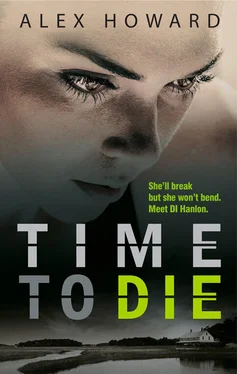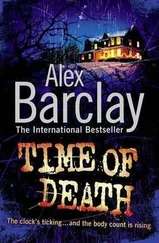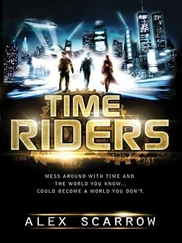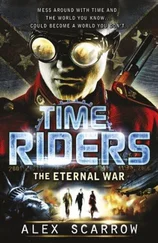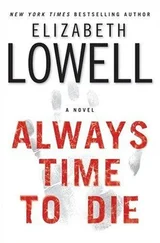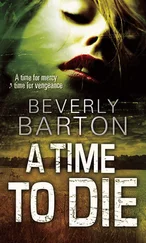Alex Howard - Time to Die
Здесь есть возможность читать онлайн «Alex Howard - Time to Die» весь текст электронной книги совершенно бесплатно (целиком полную версию без сокращений). В некоторых случаях можно слушать аудио, скачать через торрент в формате fb2 и присутствует краткое содержание. Жанр: Триллер, на английском языке. Описание произведения, (предисловие) а так же отзывы посетителей доступны на портале библиотеки ЛибКат.
- Название:Time to Die
- Автор:
- Жанр:
- Год:неизвестен
- ISBN:нет данных
- Рейтинг книги:3 / 5. Голосов: 1
-
Избранное:Добавить в избранное
- Отзывы:
-
Ваша оценка:
- 60
- 1
- 2
- 3
- 4
- 5
Time to Die: краткое содержание, описание и аннотация
Предлагаем к чтению аннотацию, описание, краткое содержание или предисловие (зависит от того, что написал сам автор книги «Time to Die»). Если вы не нашли необходимую информацию о книге — напишите в комментариях, мы постараемся отыскать её.
Time to Die — читать онлайн бесплатно полную книгу (весь текст) целиком
Ниже представлен текст книги, разбитый по страницам. Система сохранения места последней прочитанной страницы, позволяет с удобством читать онлайн бесплатно книгу «Time to Die», без необходимости каждый раз заново искать на чём Вы остановились. Поставьте закладку, и сможете в любой момент перейти на страницу, на которой закончили чтение.
Интервал:
Закладка:
‘Michael Dunlop? I’m Celia Westermann, Dr Cohen’s assistant. Would you come with me, please,’ she said.
Whiteside followed her up the stairs while Westermann apologized for the security. ‘Not too intrusive, I hope. Obviously, we have to be a bit cautious, being who we are.’ Whiteside, who noticed such things, thought to himself that Westermann was dressed as though frumpy was obligatory at the Shapiro Institute. Her clothes were like something her mother should be wearing. It was as if she were making some kind of subtle point. He was innately suspicious of people who dressed like their parents or went the other way and aped their children. Both were wrong, in his opinion. He shrugged mentally. Westermann’s attitude, whatever it may be, could hardly affect him, he thought.
As they walked up the broad stairs, they passed a large, gilt mirror and Whiteside caught a glimpse of his own reflection: burly, tough, reddish-sandy hair and close-cropped beard, punctuated by a broad diagonal scar on the right side of his jaw. He looked like a streetwise thug, exactly how you might imagine a right-wing terrorist to look. No wonder the guards had been dubious.
They stopped on the first floor. The institute smelt like a college, of carpet and books. ‘Now,’ Westermann said brightly, ‘this is Dr Cohen’s office.’ She knocked and opened the door. ‘If you’d like to go in.’
Whiteside did so. The door closed behind him and a small, white-haired man stood up from behind his desk. He looked professorial. He was wearing an antique-looking three-piece suit with a fob watch in his waistcoat. His hand was outstretched and Whiteside shook it. He smelt of books and eau de cologne, the scent of academia.
‘Ah, Mr Dunlop. Do come in and sit down, I’m Dr Sol Cohen.’ Whiteside did so. Cohen opened his laptop. That wasn’t old-fashioned: it was a new Apple Mac.
While Whiteside was in the expensive, sought-after suburb of Marylebone, DI Hanlon was in the rather less desirable Wood Green in North London. There is nothing particularly treelined and leafy about Wood Green. It’s the kind of area you might think of if you were going to film a low-budget drama on drug dealing.
‘Do come in and sit down, Sergeant Demirel,’ said DI Hanlon. ‘I take it you remember me.’
‘Yes, ma’am,’ said Enver.
They were meeting in a room at Wood Green police station that was used as a kind of storage area. Storage area was a euphemism: it was a junk room. The office lay at the end of a short corridor that led nowhere. The window looked out on to a brick wall a few feet away giving it no natural light, just what the brick wall chose to reflect, which wasn’t much. Inside the room there were several desks, chairs and two tables, as well as half a dozen filing cabinets pushed close together. Some old computer monitors were stacked up on top of the tables, there were eleven (Hanlon had counted them) old cardboard boxes containing out-of-date stationery, paper of the sort that used to be used by old-fashioned ink-jet computer printers, the kind that had perforations in strips along its edges and used to fit through a sprocket. Several lever-arch files gathered dust on a table in the corner and there was a National Trust calendar from two years ago on the wall. September 2010 featured Waddesdon Manor in Buckinghamshire in its autumnal glory. Ludgate had made this room available to Hanlon by way of an insult, a calculated snub. You can go in there with all the other unwanted junk was the message.
Ludgate was sure Corrigan had sent Hanlon down to spy on him and he was not happy. This was one way of showing it. Another was to not copy her in on emails, to not inform her of meetings, in general to ignore her, to pretend she wasn’t there. Hanlon had complained about this and received a grudging apology, Ludgate blaming it on insufficient technical support.
The intention behind the room had misfired, though. Hanlon rather liked this secretive, out-of-the-way lair. It suited her nature. She could come and go as she pleased without anyone noticing. And she liked the fact that nobody could suddenly barge in. It was physically impossible. To reach the corner where she sat, you had to thread your way slowly through the labyrinth of disused office furniture. Enver was doing this right now.
There was no question of a surprise appearance, a casual craning over to see what you were up to. It took time and effort to reach her desk and it helped to be slim.
‘Didn’t you used to be a middleweight, Sergeant?’ said Hanlon, rather pointedly, as Enver squeezed his way through the obstacle course of the room to the spare seat opposite her. He was carrying a good few extra pounds around his middle, she noticed. His paunch had brushed against the disused screens of the old computer monitors and left a wide streak of grey dust across his white shirt.
‘It’s been five years, ma’am,’ he protested. ‘Even then it was a struggle to make the weight.’
She nodded. Enver looked at her. He doubted she carried any surplus flesh. When she moved her head to one side, he could see the long, elegant muscles in her neck stretch. Under her white cotton blouse, where the top buttons were undone, he could see the strong trapezius muscles across her shoulders highly defined under her skin. It was a while since he’d weighed one hundred and sixty pounds, which had been his fighting weight. Strangely, despite the evidence of mirror and scales, he was still in the habit of thinking of himself as slim. It was becoming an expensive habit. He’d bought two new shirts recently in his last size. He’d put one of them on this morning and had to suck his breath in to button it up. When he’d relaxed and breathed out, his stomach pushed tightly against the fabric and he felt his flab redistribute itself around his middle. It’s all going pear-shaped, he thought, quite literally. I look like a pear. He felt a stab of self-loathing, revulsion at what his once beautiful body was becoming. He had looked in the mirror in his bedroom and decided he looked grotesque. His fat was visibly rippling over the waistband of his trousers and was outlined by the shirt’s material. It didn’t disguise it; it emphasized it. I’ll need a bloody kaftan soon, he thought.
Enver had shaken his head mournfully. His dad, dead of a heart attack, had been fat too. He took the shirt off, his flab hanging over the waistband of his trousers, hung it up and put on one two sizes bigger. He’d put the shirt in the side of his wardrobe reserved for shirts and suits that no longer fitted. It was a growing collection. The replacement shirt was too long in the arms for him and the cuffs poked out of the end of his jacket sleeves in an odd way. Still, better that than the tight shirt. He didn’t want to look like a beached whale in front of the DI.
Enver was becoming increasingly drawn to Hanlon. Ever since their first meeting by the canal he had found himself thinking about her at odd times. He told himself he didn’t find her attractive but he realized now that he was starting to obsess about her. He thought, I’m doing it again, staring at her thick, black, unruly hair, her dark, graceful eyebrows, her long, strong fingers. He was acutely aware of her clothes and her body and he thought, slightly desperately, I must stop this.
Hanlon was looking at him impatiently. Whatever inner turmoil Enver was going through never showed on his face. He raised his sleepy brown eyes to her grey ones and shrugged apologetically.
‘Who was champion then?’ she asked.
‘Ma’am?’ He was confused.
‘When you were fighting, Sergeant. Who was UK champion? At your weight.’
‘Howard Eastman, ma’am,’ he said.
‘The Battersea Bomber,’ said Hanlon thoughtfully.
She’d seen Eastman fight. All she could remember was his dyed beard, that and his speed. The beard had looked strange. He’d coloured it yellow, she seemed to remember, and he was black. From a distance he’d looked really old, the beard appearing snowy white under the harsh ring lights, whereas he’d only been about thirty something. Hanlon liked boxing very much. The discipline, the aggression, the artistry, the nobility, the pain and the purity of the sport, all of these were things she admired most in life. Also, its solitary nature appealed to her. ‘You’re not a team player, Hanlon’ — an accusation, and a true one, that she’d lived with most of her life.
Читать дальшеИнтервал:
Закладка:
Похожие книги на «Time to Die»
Представляем Вашему вниманию похожие книги на «Time to Die» списком для выбора. Мы отобрали схожую по названию и смыслу литературу в надежде предоставить читателям больше вариантов отыскать новые, интересные, ещё непрочитанные произведения.
Обсуждение, отзывы о книге «Time to Die» и просто собственные мнения читателей. Оставьте ваши комментарии, напишите, что Вы думаете о произведении, его смысле или главных героях. Укажите что конкретно понравилось, а что нет, и почему Вы так считаете.
